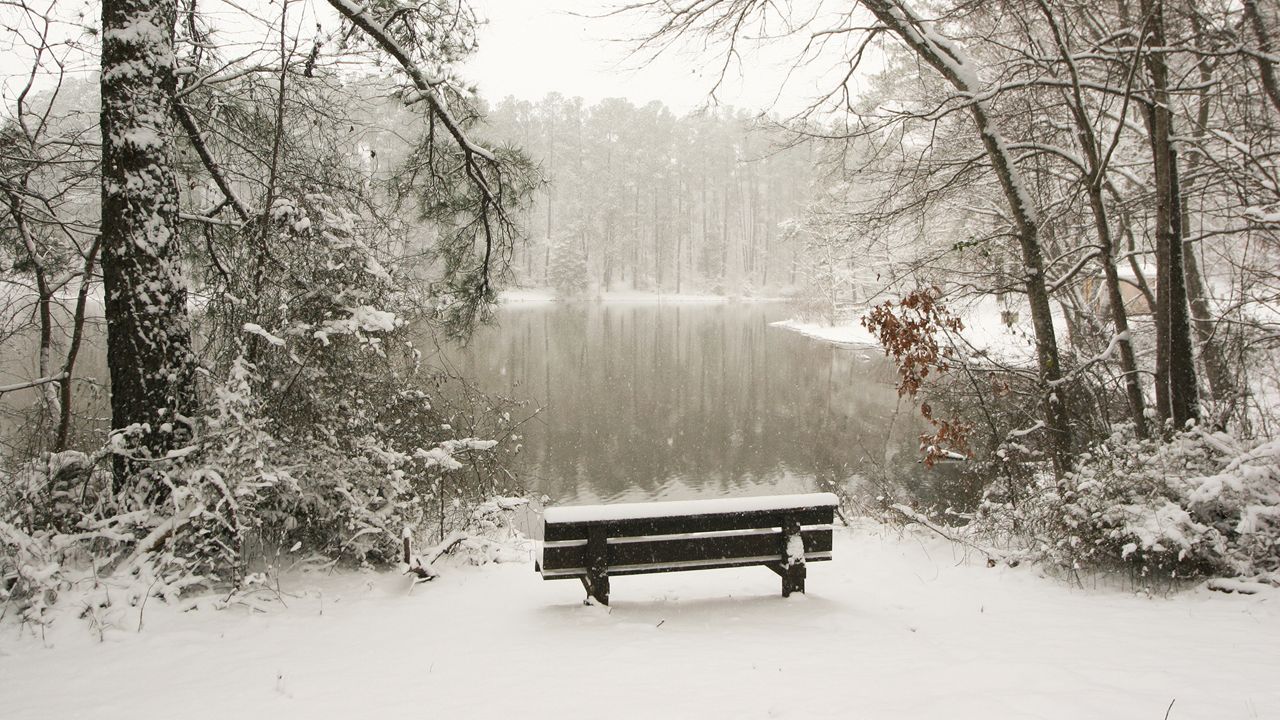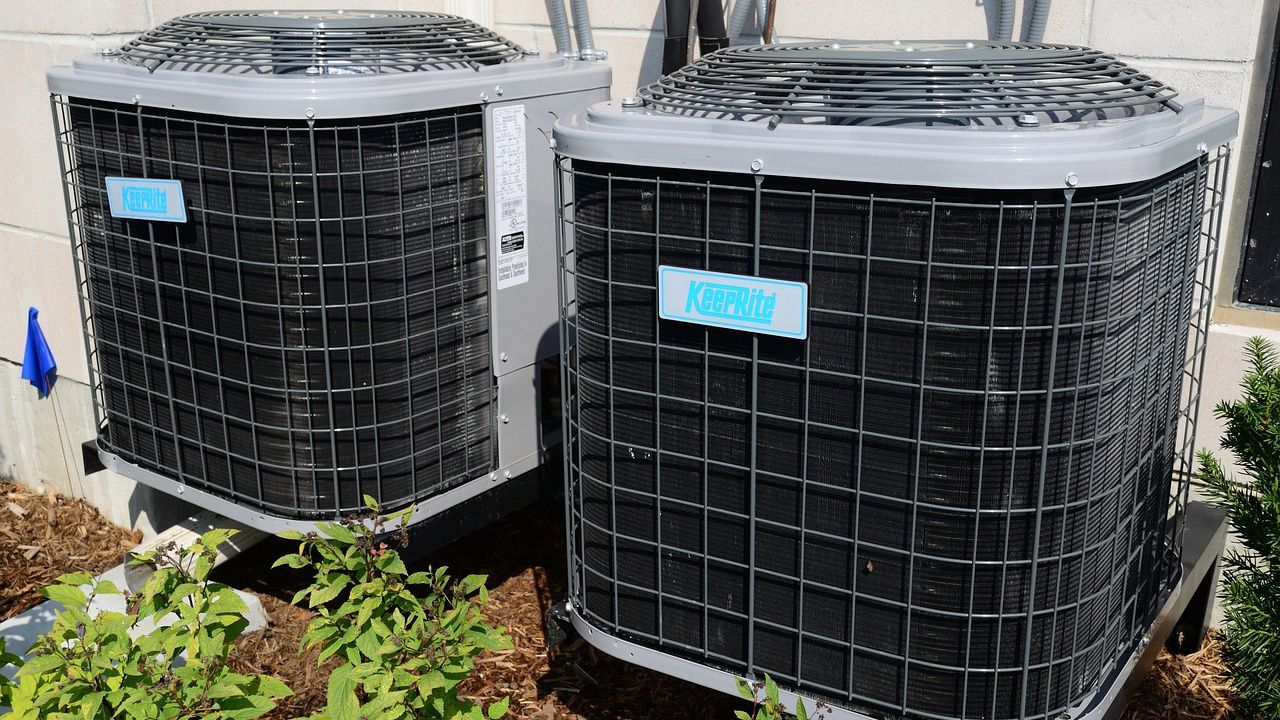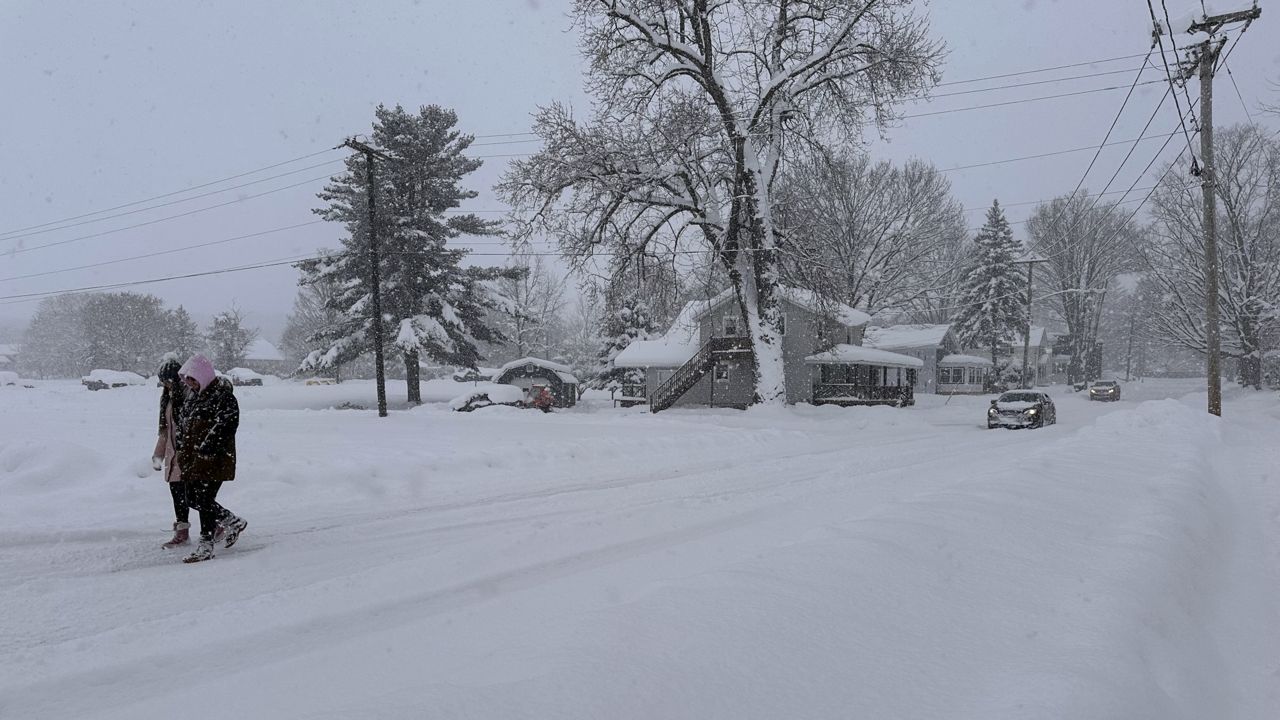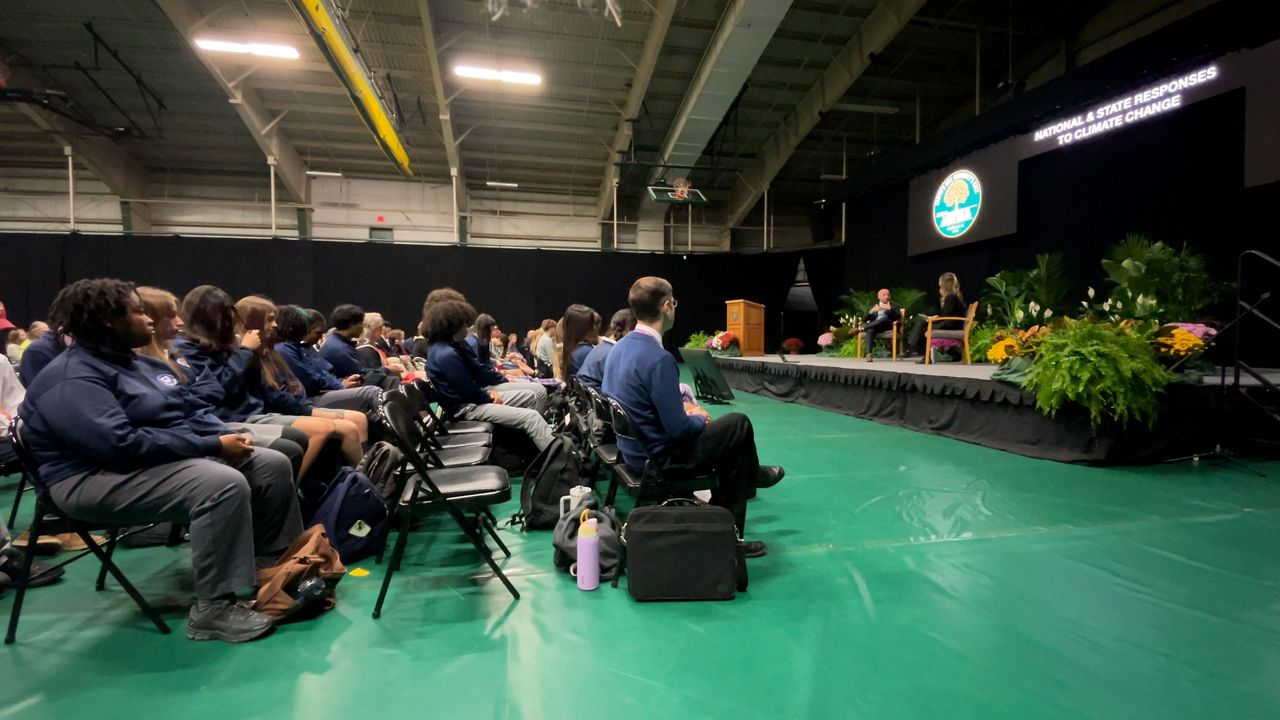Weekends of constant rain has harmed the bottom line for apple farmers in upstate New York. Some have seen their revenue halved by rainfall that has slowed the flow of apple-picking customers.
Apple picking is a fall staple in upstate New York for families looking to make memories and farmers at orchards looking to sell their harvest. But this season, several consecutive rainy weekends have put a damper on it.
Peter Hull decided that after 20 years working in New York City, it was time to come back home to his family’s farm at Apple Dave’s Orchards.
“I could think of nothing I know that I'd enjoy doing more right now," Hull said. "The idea of sitting down on the beach twiddling my thumbs or playing golf just doesn't match with playing with the tractor.”
But things haven’t been easy.
The last few years, hail storms and drought brought significant challenges to the apple crop. This year, Hull says the crop was good, but weather reared its head again, this time in a different way.
“One weekend was raining, and then the next weekend was raining," he said. "And you expect that, and that's just part of the game, but suddenly, when it's eight or nine weekends, you know, the whole game shifts.”
Hull said a usual fall weekend would bring as many as 3,000 people out. This year, the rain dampened that; maybe a couple of hundred people came out. And the orchard's popular tractor rides can’t go out in muddy fields.
The wet weather that kept many people away has meant the orchard is making half as much as it usually does during its most fruitful time of the year.
“You suck it in and go back to your savings account and delay all of your equipment purchases and a lot of repairs. And just tough it out for a year, for a year or two," Hull said.
There just isn’t much he can do. Hull jokes he has crop insurance, but not customer insurance. For now, he’ll try and make the orchard a year-round operation, like continuing to run a distillery.
“We're working on trying to work up that part of the business, as well, and have more going on the weekdays and on the afternoons and things like that," he said. "So we won't be so dependent on just those two days a week.”










